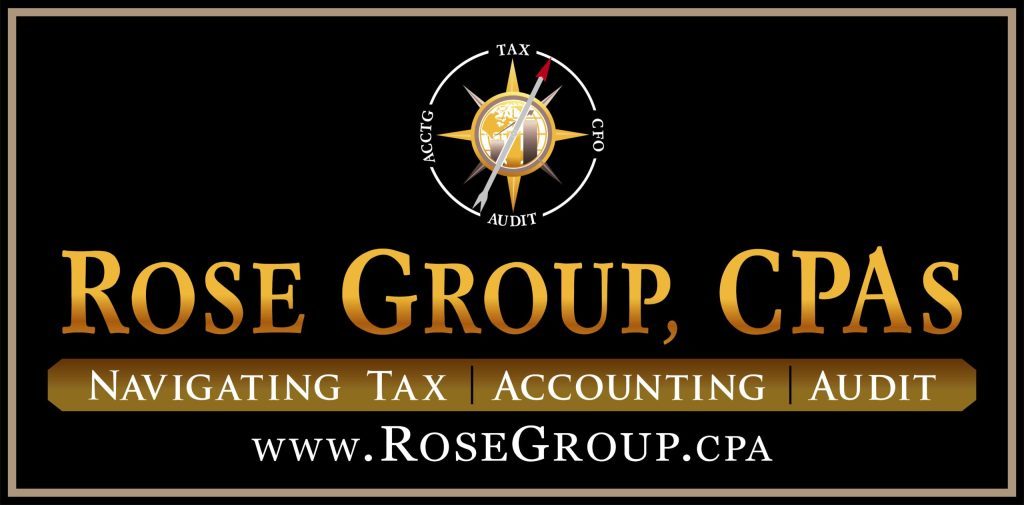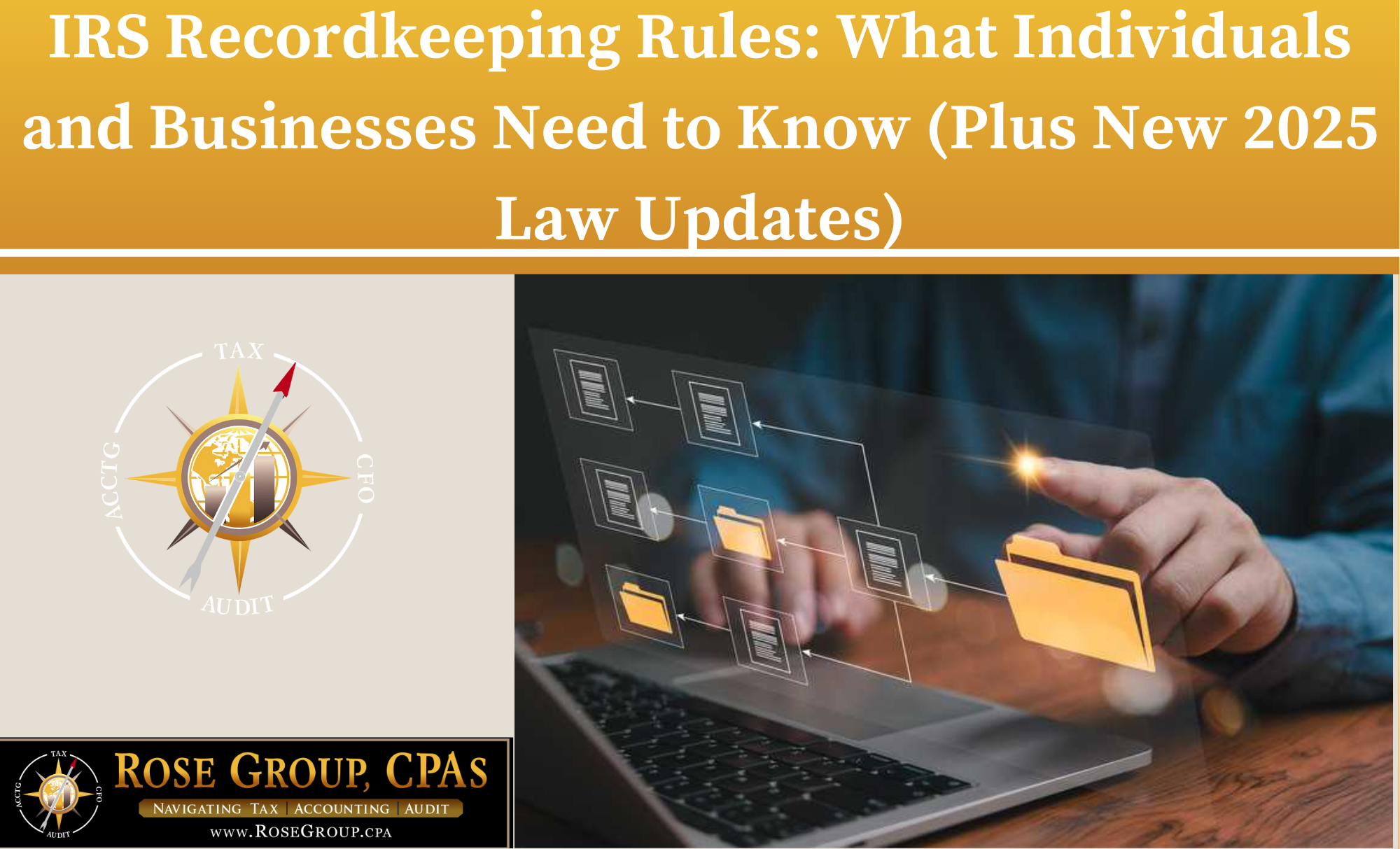Keeping meticulous records isn’t just smart—it’s essential. Whether you’re an individual taxpayer or a business owner, good documentation helps you stay compliant with IRS rules, unlock every tax benefit, and sidestep headaches come tax season.
Plus, with the new One Big Beautiful Bill Act becoming law on July 4, 2025, there are important changes to know that could further impact your recordkeeping strategies.
What’s New Under the One Big Beautiful Bill Act (Effective 2025–2028)
The One Big Beautiful Bill Act (signed July 4, 2025) brings several new tax provisions that taxpayers and businesses should be aware of:
• Qualified Tip Income & Overtime Deductions
Tipped workers earning under applicable thresholds can claim deductions up to $25,000 for tip income, and individuals (up to $12,500, $25,000 if filing jointly) can deduct qualified overtime pay through 2028.
• Auto Loan Interest for U.S.-Assembled Vehicles
If you buy a car assembled in the U.S. between 2025–2028, you can deduct up to $10,000 per year in auto loan interest.
These are temporary yet lucrative opportunities—mak[e] sure you keep all related documentation (pay stubs, loan statements, vehicle details) meticulously preserved.
Recordkeeping Essentials for Individuals
Expense Reimbursements
- Keep receipts with date, amount, and a clear business purpose.
- Save any company reimbursement policies.
- Though unreimbursed employee deductions are limited post-Tax Cuts and Jobs Act, solid docs can help justify any eligible claims.
Home Office Deduction
- Sketch or photograph your floorplan, highlighting total vs. home office square footage.
- Retain paperwork for rent/mortgage interest, utilities, repairs.
- Show income or use that proves exclusive business use.
Mileage Tracking
- Log trip dates, starting/ending mileage, destinations, and business purposes.
- Mileage-tracking apps like MileIQ or Everlance can simplify logging and backup retention.
New Tip & Overtime Deductions
- Document tip income and overtime pay eligibility clearly (W-2s, pay stubs, employer communications).
- If you deduct auto interest for a U.S.-assembled vehicle purchase, keep purchase agreements and loan paperwork.
Recordkeeping Essentials for Businesses and Fractional CFO Clients
Whether you’re running your own operation or advising clients as a fractional CFO, keeping clean records is mission-critical—not just for tax compliance, but to maximize valuable deductions.
Employee Expense Reimbursements
- Hold onto itemized receipts, a written reimbursement policy, and proof of repayment to employees.
Home Office Reimbursements
- Under accountable plans, businesses can reimburse home office expenses—but you’ll need receipts, documented business-use percentages, and consistent policy adherence.
Vehicle Use & Business Auto Purchases
- Track business vs. personal mileage on company-owned cars.
- For new purchases, save sales contracts, financing documents, business-use logs, and evidence of eligibility for potential depreciation or Section 179 deductions.
- If the vehicle qualifies for the auto loan interest deduction (U.S.-assembled), document build and purchase details.
Depreciation & Expensing
- With the new law making Section 179 expensing permanent and enhancing bonus depreciation, keep clear records of asset acquisitions, service dates, and usage to back up claims.
Document Retention Guidelines
The IRS generally recommends keeping tax and business records for at least 3 years after filing. But consider hanging onto items longer when:
- There’s depreciation, loss carryforwards, or audits pending.
- Temporary law changes (like the One Big Beautiful Bill provisions) span multiple years.
Also, check for state-level requirements—some states have longer retention mandates.
Pro Tips for Better Recordkeeping
- Digitize everything—scan and tag receipts, logs, and loan statements in cloud software.
- Use accounting systems—tools like QuickBooks or Xero make tracking, categorizing, and reporting a breeze.
- Keep business and personal finances strictly separate using dedicated accounts and cards.
- Review records regularly so nothing slips through the cracks and auditing stress is minimized.
Why This Matters—and How a Fractional CFO Helps
Good recordkeeping doesn’t just protect you—it empowers better financial decisions. As a fractional CFO firm, our role blends expert financial analysis with proactive tax strategy. We help you:
- Navigate temporary deductions like those for tips, overtime, and auto interest.
- Structure reimbursements and expense tracking under IRS-compliant policies.
- Prepare for audits and support documentation that withstands scrutiny.
- Optimize deductions and credits under evolving laws so you keep more of your hard-earned money.
Have questions about how these new provisions apply—or want personalized help organizing your bookkeeping and maximizing compliance? Contact us at Rose Group CPAs. We’re your trusted fractional CFO and accounting consulting partner, and we make tax complexity feel manageable and personal.

